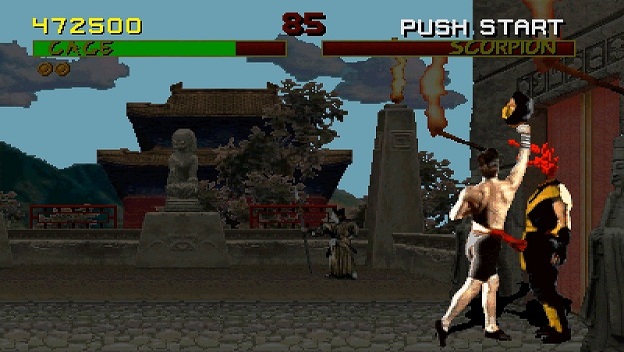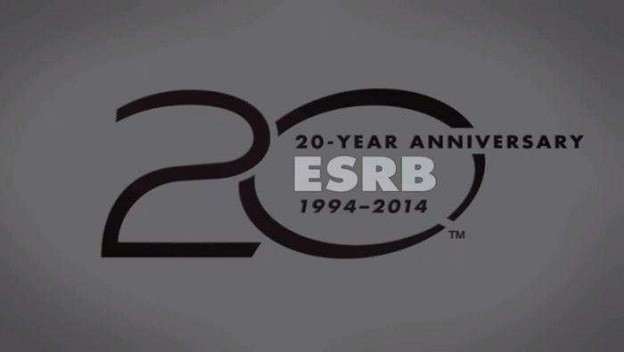Responsible marketing or over-reaching censorship…which is it really?
For as long as I can remember, I’ve had someone looking over my shoulder telling me what’s right and wrong. It seems that no matter where you look, there will always be one group or another trying to influence what you can and can’t do. Even as an adult, I find society has a strict set of rules to which I’m instructed to set my moral compass by. Frankly, it can become pretty damn annoying at worst (and utterly exhausting at best) trying to keep up. Having said that, I’m not exactly one for complete anarchy, as I do feel a little sensible guidance and restraint goes a long way in some cases.
As a result of being unable to reconcile this strange dichotomy of my personality, I often find I’m at odds with myself.
Take our very own ratings board the ESRB for example. This week the organization celebrated 20 years of overseeing video game content, in their attempt to steer questionable materials away from the impressionable young minds of today’s youth. Actually, make that today AND yesterday. The ESRB dates back to the mid-‘90s era of the arcade. For you readers too young to remember, just close your eyes and image yourself surrounded by the flickering glow of arcade monitors, combined with the wall-to-wall mish-mash of all the cabinets playing at once (creating a symphony of beautiful noise I still miss to this day). One title in particular was so controversial, it ultimately gave politicians the platform they needed to take aim at our industry from the inside out. Future Vice Presidential candidate Joe Lieberman would spear head a campaign that forced gaming to provide some type of ratings guide, after the spine pulling fun of the Mortal Kombat series garnered mainstream attention in the press during the summer of ’92. This would eventually lead to the Entertainment Software Ratings Board’s creation just two years later (the consequences of which are still strongly felt in 2014’s game development).
So how does a libertarian-esque person like myself not call for mutiny, when such a cloud looms overhead every time we purchase a new title at the register?
To be honest, it’s probably because I became a Father. My son is about to turn two years old in a few months, and I have no doubts we’ll share similar interests down the line. There are three things I’m really into: music, movies and games. I’d say it’s a fair assumption he’ll be into at least one (if not all) of those things, which does kinda’ open a can of worms for me. There’s no denying our entertainment is getting edgier by the year. The things we can now witness in movies, watch on TV or even experience via video games is far more intense than in years past. I’m not saying that’s a bad thing, but I am suggesting there are benefits of having some lines clearly defined. In that regard, I’m grateful bodies like the ESRB provide a baseline regarding the nature of certain content, so I can make a more informed decision as a parent. I still may let my son play violent games when he’s a teenager, then again, maybe I won’t. The most important thing is that it remains my call to make and mine alone.
On the flip-side of that coin, I do tend to react harshly to censorship. This is where groups like the ESRB (and film’s MPAA) need to revamp their so-called “process.” Much of the “unsafe” or “obscene” content is deemed as such solely based on the opinions of a select few people, who have no right calling the shots regarding what the rest of the adult world does in the first place. The idea that some soccer Mom’s misguided opinion can literally cripple the financial future of an entire game studio is a huge flaw in the system to say the least (bordering on corruption). Being slapped with an “Adults Only” label is essentially a death sentence in the market (as some retailers won’t even carry games marked AO). This has a direct effect on the artistry of our industry, forcing it to be seriously derailed and watered-down in many instances. The words I’m typing now cannot strongly express just how against this practice I truly am (bolding, italicizing and underlining simply doesn’t do it justice).

What we have here is a double-edged sword. I think there are merits to a rating system, but not in its current form. While the ESRB is very much a “self-governing” body as former-Senator Lieberman recently touted during the 20 th anniversary celebration, it seems he kind of misses the point. Of course we wouldn’t want an outside entity (like the US Government) stepping in. But handing the keys over to a small group of people (that don’t necessarily represent the core values of our industry) was never the best solution either. As an alternative, I suggest appointing more gamers (whom are also parents) to the decision making panels, instead of this top-down approach we currently have. Alas, without any real calls for change, don’t look for an evolution anytime soon. It appears complacency with the status quo is likely to result in yet another 20 years of the ESRB staying exactly the way it is.
Sad…and perhaps even a bit scary if you think about it.
